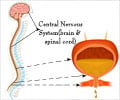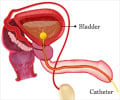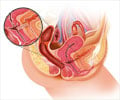
MSN Launches India’s First Most Beneficial Urinary Incontinence Drug
Overactive Bladder disorder (OAB) is the involuntary leakage of urine due to pelvic floor dysfunction and is commonly seen among women. The prevalence of urinary incontinence (UI) in India is also relatively high, ranging from 10% in rural areas to 34% in urban areas. Although it is not a threat to life, it causes discomfort, shame, and loss of self-confidence. In India, 1 in 3 women above the age of 50 suffers from urinary incontinence impacting their quality of life. Patients suffering from overactive bladder problems suffer from urgency to empty the bladder with increased daytime frequency.‘Newly launched Fesobig is the safest, first-line option for the treatment of overactive bladder (OAB) and urinary incontinence (UI).’
Tweet it Now
Symptoms can affect psychological, social, occupational, domestic, and sexual aspects of life. Its prevalence increases with age, and due to a lack of awareness, only a small percentage are diagnosed and receive treatment.Fesobig being the world’s first bioequivalent generic version of fesoterodine fumarate, it is recommended as the safest, novel first-line drug option by various international treatment guidelines for the treatment of overactive bladder (OAB) and urinary incontinence (UI).
Besides helping recover from overactive bladder (OAB), researchers are certain that Fesobig will endow patients with a much more confident way of life by eliminating the social and psychological discomfort associated with the condition. The company has ensured that the drug is priced affordably so that it can benefit a vast majority of patients.
Source-Medindia















